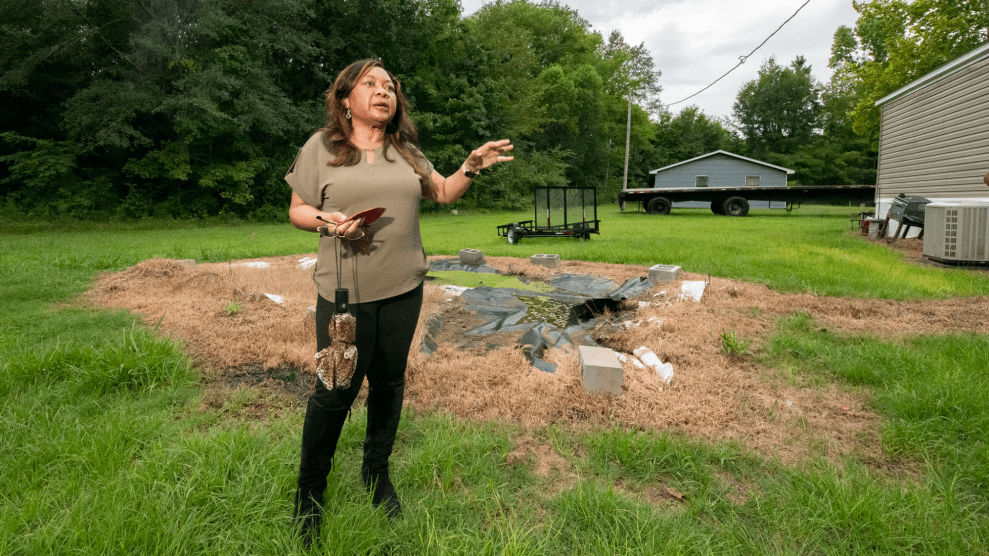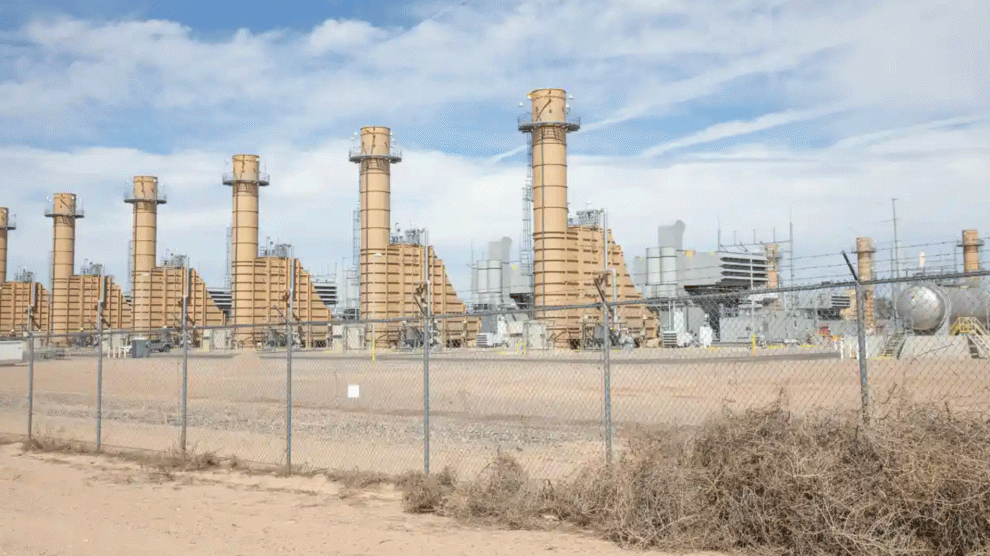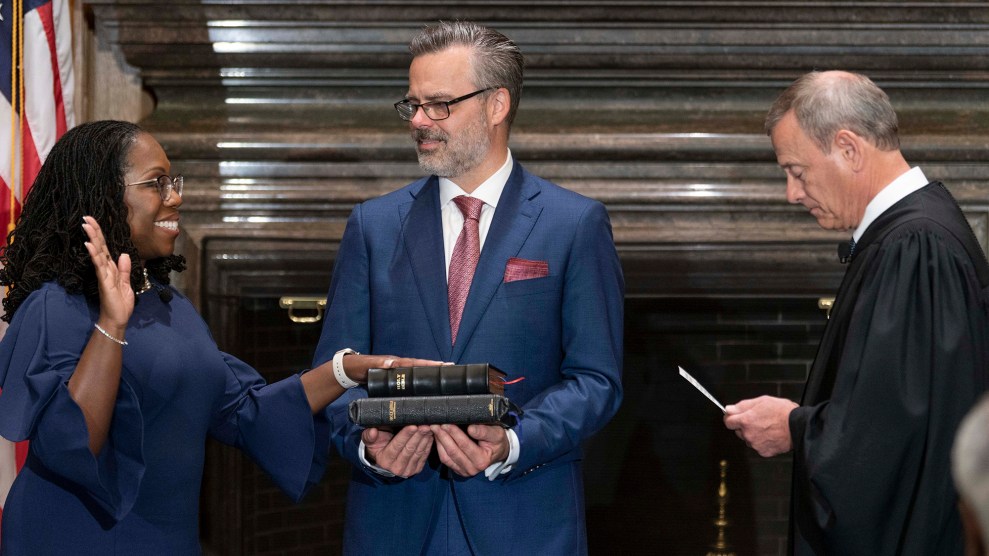
In Hayneville, Alabama, tour facilitator Catherine Flowers shows off a Lowndes County home with a failed septic system. Lance Cheung/U.S. Department of Agriculture
This story was originally published by Grist and is reproduced here as part of the Climate Desk collaboration.
For as long as anyone can remember, the lack of a sanitation system in Lowndes County, Alabama, and resulting reliance on piping human waste directly into septic tanks and local creeks, has made life in the community miserable. After years of organizing and calls to action by the residents of this rural, low-income, and largely Black community, Earthjustice and Alabama grassroots leaders submitted a civil rights complaint, alleging racist neglect by Alabama public health officials. In response, federal authorities launched an investigation.
The 18-month inquiry found the Alabama Department of Public Health and the Lowndes County Health Department acted with neglect and discrimination toward the county’s residents by not only denying them access to basic sanitation, but imposing fines and even liens against them while ignoring the grave health impacts the situation created.
“Today starts a new chapter for Black residents of Lowndes County, Alabama, who have endured health dangers, indignities, and racial injustice for far too long,” Kristen Clarke, assistant attorney general of the Justice Department’s Civil Rights Division, said Thursday in a statement announcing the agreement. “Our work in Lowndes County should send a strong message regarding our firm commitment to advancing environmental justice, promoting accountability, and confronting the array of barriers that deny Black communities and communities of color access to clean air, clean water, and equitable infrastructure across our nation.”
Residents of this county in central Alabama have long lived without basic sanitation services and have watched raw sewage from failing septic tanks flow into their yards. Catherine Coleman Flowers, founder of the Center for Rural Enterprise and Environmental Justice and a 2017 Grist 50 honoree, brought the issue to public attention in her book Waste: One Woman’s Fight Against America’s Dirty Secret. It describes shocking scenes of raw sewage on the ground, overflowing toilets, and repeated calls in vain to the city to pump effluent from yards.
In a county where almost one in three residents live in poverty, very few could do much about the problem, leaving almost half the county’s homes without access to wastewater infrastructure. A study in 2017 found that rare intestinal parasites persisted in over 30 percent of the Lowndes county residents surveyed, and all of them were Black.
After years of community organizing led by Flowers and others, the federal Justice and Health and Human Services departments launched an investigation in November 2021. They focused on Title IV of the Civil Rights Act, which prohibits recipients of federal funding from discriminating on the basis of race, color, or national origin in federally funded programs and activities. They also considered the Affordable Care Act, which explicitly prohibits the exclusion of any individual from services provided by a public health program.
The investigation found that not only did the Alabama Department of Public Health fail to provide basic sanitation to the residents of Lowndes County, but the Lowndes County Health Department actively enforced sanitation laws. It often levied charges on residents who had no control over the sanitary conditions in their community and who often could not afford upgrades.
According to the agreement, the state health department is working alongside federal agencies to correct the situation. The Department of Justice has ordered the agency to immediately stop prosecuting Lowndes County residents for sanitation law violations and take meaningful steps to assess the county’s wastewater needs, develop a plan to address them, and collaborate with the residents to do so. The state health department must provide people with “critical health and safety information” and work with the federal Centers for Disease Control and Prevention to assess health risks to the population. It must also develop a plan within a year to improve public health in the county. Federal agencies may reopen the investigation if officials feel the agreements are not being followed.
“The work is just getting started,” Flowers said. “We have, over the years, been working to shed light on the problem. Now we’re at the point where we’re working on a solution. I think that [state health officials] will cooperate, because now the nation is watching.”
The federal investigation and resulting agreement mark the first time an environmental justice inquiry has fallen under the Civil Rights Act. Justice Department officials indicated that it would not be the last—something Flowers applauded.
“There are numerous communities across the United States, especially rural communities, that have these issues,” she said. “So yes, we hope that this will be an example for others to follow. Or people can decide to not wait for the Justice Department to get involved, but to go to work on solutions.”















